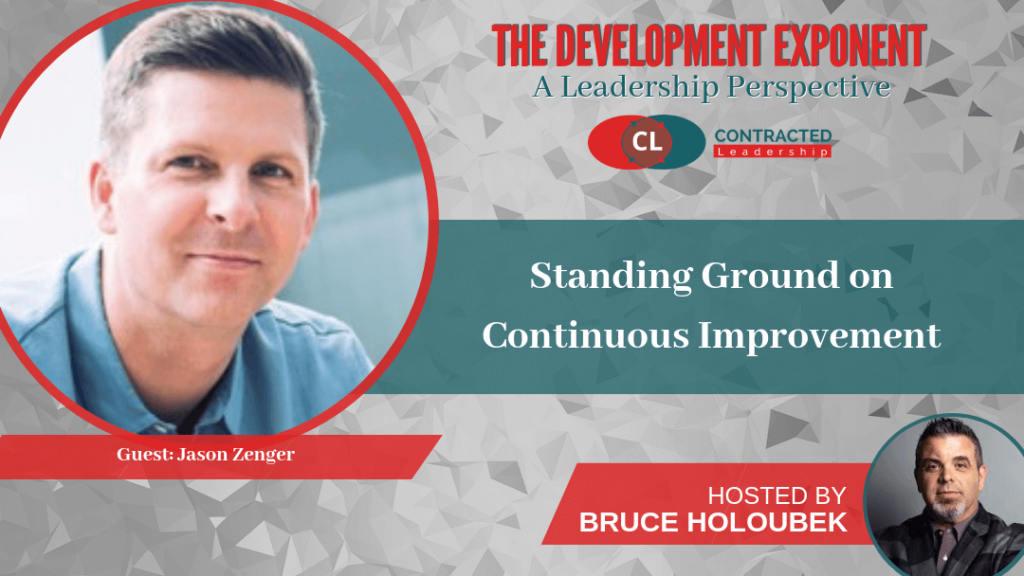
As a leader you commit yourself to continuous improvement because you know that “good enough” doesn’t last. You work on self development so that you can be the leader who heralds needed changes in a way that preserves and elevates the integrity of your organization. It becomes inevitable that when you hold continuous improvement as a primary value, it is a value you lead with, and infuse into your company culture. Improvement is a must to expect of yourself, but if your employees are not the owners, and not all of them see themselves as having much to gain from walking the extra mile, can you expect the same from them?
Build the wall of core values: In hiring be firm. If you rush to hire, or push a person through who doesn’t match the values then you will regret it. #levelupyourleadership #leadership #contractleaders Click To TweetIf you’ve ever faced the question of how to implement continuous improvement in your organization, read on as Bruce Holoubek, owner of Contracted Leadership, and Host of The Development Exponent Podcast talks to Jason Zenger, the President of Zenger’s– a company with a mission for, “continuous improvement of manufacturing operations that result in documented profit improvement.” Zenger’s is a distributor and service provider specializing in tooling and related supplies, metalworking, consulting, and tool crib management. The company lives Jason’s value for continuous improvement. Some of Jason’s drive to “prove and improve” comes from being born into the family business, thus needing to show his worth, while we can suspect the other parts of his drive come from character and a leader’s spirit.
Recently, Zenger’s went through an Enterprise Resource Planning (ERP) implementation. ERP systems are critical for managing thousands of businesses of all sizes in all industries, and are as critical as keeping the lights on. They are an improvement process but also a chance to take a fair look at how your organization is doing. This was not Zenger’s first ERP, and through this last one, he saw the success that could not have come had he not learned to step away from micromanagement, and take on other lessons in improvement for himself and for his team.
Recover from micromanaging: Allowing your team to be autonomous in their work and decisions allows you to reap dividends because they are going to take ownership for their responsibilities. #levelupyourleadership #leadership #contractleaders Click To TweetLessons
Recover from micromanaging: Allowing your team to be autonomous in their work and decisions allows you to reap dividends because they are going to take ownership for their responsibilities.
Work on your business instead of in your business: touching on the micromanaging issue, if you trust your people to ask the right questions, to do what they do, and feel safe in exploring creatively, they will do the work in your business, which will allow you to be more effective with your time as a leader and work on your business.
Create a culture of openness: Tell your team to push back on you. If your COO has more experience in business than you, tap into that knowledge. Ask to be evaluated on how you can improve and what you did well. You will grow and your employees will see that you are holding yourself to the same standard of improvement that you expect from them.
Let people speak openly to you. Allow pushback from leaders you respect– let them know you expect it and accept it. #levelupyourleadership #leadership #contractleaders Click To TweetCast a vision: Articulate your vision, lead towards that vision, and even if you don’t make it to your goal, enjoy the satisfaction of being brave enough to aim there. Not “getting there” is ok if you ask how you can do it better next time and retool. That is part of the improvement process– not making a basket when learning to play basketball is not a failure, it is a step in the process of learning to make the basket.
Build the wall of core values: In hiring be firm. If you rush to hire, or push a person through who doesn’t match the company values, you will regret it. A firm values-filtering process helps ensure the right company culture, but enforcing that process is a hiring-discipline must.
Be clear in your expectations: Make it clear that you are going to be a company that demands self improvement, but know that people see improvement differently– not everyone wants to advance to the management role or the next department. Not everyone wants a bigger paycheck (as it will mean bigger responsibilities). For people who love what they do, doing something different can mean unhappiness. Don’t make the carrot something these people don’t value– allow them to stay where they are, but do expect them to improve in their role or as a member of the organization. Whether it’s taking a class on communication or joining a company club, they still have to make even the slightest of improvements.
Live beyond your role: Stay flexible and open by not allowing your job title to define who you are. You are not just the president of a company, you are a human being with multiple purposes. Take a cue from water– it is powerful, yet it can take many shapes and be many things. It can be soft and life creating, and it can destroy. You are not one title.
Know that tomorrow will be better than today. Keep people around you who believe that too– because they will make improvements in themselves to prove that belief. #levelupyourleadership #leadership #contractleaders Click To Tweet
